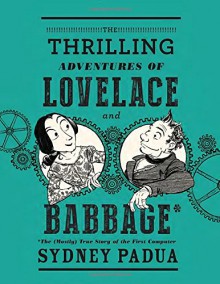
Einstein's block universe takes Time out of the universe. Time after Einstein can be said to be an illusion, time is that which exist so that everything doesn't happen at once. Henri Bergson, probably the most famous 20th century philosopher that most people have never heard of, but almost everyone has heard of his arguments ('elan vital', 'creative evolution', 'intuitive time'), wanted to put man and his intuitive understanding of time back into the center stage of the universe.
If I were to write a movie where the protagonist was going to time travel, I would have her reading a copy of this book. Time is not what most of us think it is and by seeing if from the perspective of these two great minds adds to my appreciation for the nuances involved.
I have a hard time finding new books in science or philosophy which are not just a rehash of other recent books that I have already read. This author manages to talk about her subject matter in a surprisingly refreshing manner. She gives the reader the connections and the nuances involved in the story. Einstein did make the 'original sin' (his words) of entwining the absolute speed of light with a physical clock. That is the ultimate problem that Bergson has with Einstein, the physical understanding of time with the universe's understanding of Time. Einstein (and as science always does) will mix the concrete (empirical) with the abstract (intellectual) and develops a theory about reality.
The author draws the connection with Bergson's view point to Husserl's Phenomenology, to Heidegger's Being (Daisen), and to the start of the Existentialists. I did not realize, for example, that Heidegger's 'Being and Time' was such a strong reaction against Einstein. That Heidegger wanted to put the 'becoming' back into the world from the being of being (Daisen) because Time (that's 'time' with a capital 'T") was being taken out of the world.
The book not only equally considers the science and the philosophy at the period under consideration it also gives a subtle discussion about the nature of science. Copernicus makes the sun the center of the solar system, but does that mean it's only that because it makes the mathematics easier to play with or is it really that way. Einstein takes out a universal time by taking out simultaneity and replacing it with the speed of light as a constant and a physical clock (and the equivalence principle, where inertia mass is equivalent to heavy mass, but the author seldom talks about gravity).
Einstein never accepted quantum physics even though he is one of its principal creators because of his discovery of the photoelectric effect and Brownian motion. His General Theory is based on continuity. Bergson's approach is more discrete thus more attuned with quantum physics. The author points out how in some ways the science of quantum physics started going towards Bergson.
I really appreciate an accessible book that takes me way beyond the current popular science and philosophy books and not just a rehash of things I already know, and therefore I would recommend this book for those who love the intersection between science and philosophy and like to be challenged with a story that has not already been told in such depth.





 Log in with Facebook
Log in with Facebook 
















